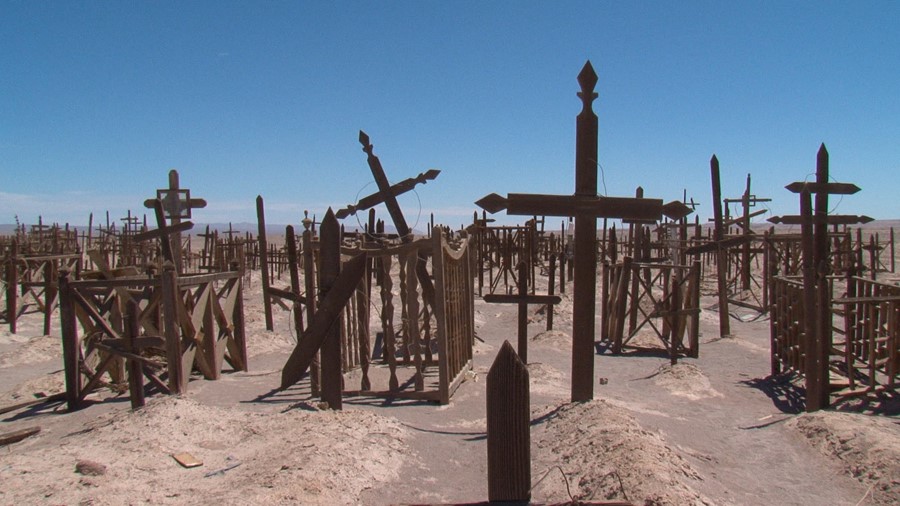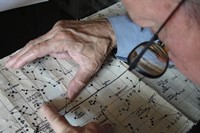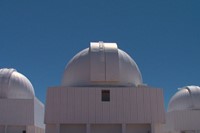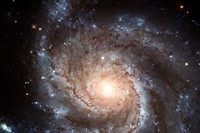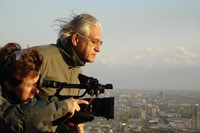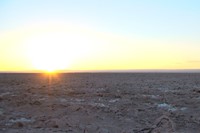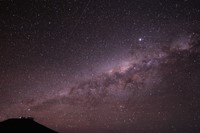Chilean director Patricio Guzmán’s latest documentary Nostalgia for the Light is a startlingly unique and poetic move to heal his nation’s trauma, unexpectedly linking themes of military oppression and astronomy...
Chilean director Patricio Guzmán’s latest documentary Nostalgia for the Light is a startlingly unique and poetic move to heal his nation’s trauma, unexpectedly linking themes of military oppression and astronomy. Set for a UK release this year, it opens with an old telescope in a Santiago observatory and views of the heavens. Guzmán reminisces in voice-over about a pre-70s when his homeland was a haven of peace, with a growing fascination with the secrets of distant space – until enchantment and memory were ruptured by the horrors of Pinochet’s dictatorship.
When AnOther caught up with Guzmán, who’s been living in exile for decades in Paris, we asked him about his inspiration for the strange parallels drawn by the film. "When I was doing research I made a list, entitled ‘Politics, astronomy and human rights'. To my surprise, I found many similarities. For example, in 1988, Pinochet was arrested in London, the largest telescope in the desert was inaugurated (the VTL) and a mass grave with 15 bodies was discovered. These coincidences convinced me that to bring such events together was not something arbitrary but something completely real."
"In 1988, Pinochet was arrested in London, the largest telescope in the desert was inaugurated (the VTL) and a mass grave with 15 bodies was discovered"
Much of the film was shot in Chile’s Atacama Desert – the driest place on the earth, and home to a monstrous paradox. Favoured by astronomers and archaeologists due to its climate and the sky’s translucency, it is a prime location for searching for answers about humanity’s past and place within the cosmos. But it is also, chillingly, a burial site for Chile’s more recent history. It’s here Guzmán interviews mothers of the disappeared – women who, for 28 years, have been sifting the desert for the bones of their relatives. Aerial archival footage sweeping over the desert shows Chacabuco, the largest concentration camp under Pinochet’s ruling junta, which interred its victims in the surrounding expanse.
"Atacama is a piece of Mars on Earth,” said Guzmán. “It’s entirely distinct, and at the same time a large storehouse of the past. It's like walking on a far-off planet where there are fossilised animals, pre-Columbian ruins, mines from another time and cemeteries of human bodies whose voices are brought to us on the wind. At night, the image of the Milky Way produces fear. You discover that our house is not only on Earth but extends through the whole galaxy."
Astronomer Gaspar Galaz, when interviewed in the film, points out that while his practice is also utterly dependent on the past, unlike the mothers of the disappeared astronomers can sleep at night, making comparison ultimately impossible. Still, Guzmán’s parallels offer real solace. Prisoners he speaks to attest that in the face of physical captivity and torture, imagining oneself out of one’s confines can provide a strong sense of interior freedom. Luis Hernandez speaks of the solace he felt observing constellations while detained in Chacabuco, while Miguel Lawner recalls how he memorised the proportions of the five detention centres where he was detained so he could later draw them with startling exactitude, transforming himself into an “architect” of the walls which contained him.
"Millions of Chileans changed their life, work, home, city, family, even country, after the coup," said Guzmán of the lasting trauma of the dictatorship. "The destruction of the country that we knew and the dismantling of the longest representative democracy in Latin America resulted in all of us and in our children a shock which has not yet left us." Astronomer Valentina Rodriguez, whose grandfather taught her to observe the stars before her parents disappeared in 1975, is last interviewed in the film, and is testament to a healing process. She points out that calcium is in bones and stars alike, with science comforting her that matter is not eliminated, just reformed in a cycle which will not begin and end with her – knowledge easing her severed generational link.
Guzman said of his filmmaking’s transformative methods: "Poetry is a great mystery. There are no blueprints. When you're making a movie you really know almost nothing about the poetry involved. It takes over the filmmaking and enters the frame without us realising what is happening."
Nostalgia for the Light is out now on DVD.
Text and Spanish interview translation by Carmen Gray
